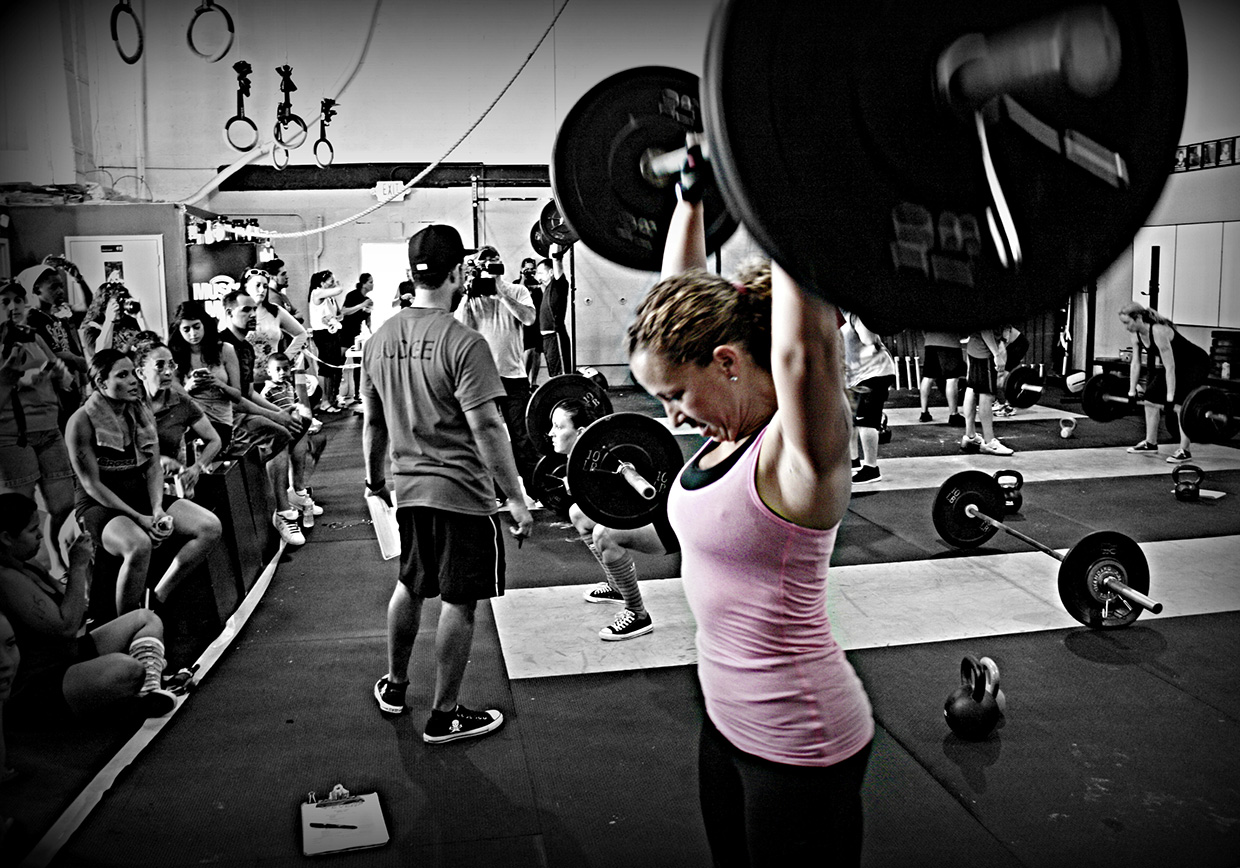This summer, the Strong Is the New Skinnymovement has been blowing up social media, encouraging women to trade in their diets and skinny jeans for weight training and CrossFit workouts. The first affiliated gym was CrossFit North in Seattle, growing to 13 CrossFit gyms by 2005 and more than 6,100 today.
Naysayers claim that Strong Is the New Skinny simply exchanges one aesthetic ideal for another. Jennipher Walters at the Huffington Post comments, "Instead of treating our body with respect and loving ourselves, we transferred our need to feel beautiful (and therefore worthy) to the weight room instead of getting our self value from a deeper place?" As much as I appreciate Walters' thoughtful analysis, I disagree. I can speak from experience and tell you that the weight room is the classroom in which we, as women, can learn to recognize and celebrate the strength of our bodies.
I first lived out Strong Is the New Skinny in high school, transitioning from a desperation to be thin to regular weight training. I was only 13 when I developed an eating disorder. A voice inside my head berated me with negative self-talk and insisted I'd be more socially acceptable if I was thinner. Fat. Worthless. What a failure you are … you can't even lose ten pounds. You're hopeless. See them over there, they're laughing at you—no one will approve of you or even really like you until you lose the weight. How could you eat that orange? You know where that will go—straight to your thighs. You're going to have to get rid of it now—but don't let anybody catch you. Like the skinny ideal perpetuated the media, the voice was convincing in part because it was constant—like static looping through the mind 24/7.
"We turn skeletons into goddesses and look to them as if they might teach us how not to need," wrote Marya Hornbacher, author of the bestselling memoir Wasted. An image of an angular, skinny woman became elevated as the female ideal, seen every time we stand in a checkout line, turn on the TV, go to the movies, or pass by an Abercrombie and Fitch.
As a teen, thin was never thin enough, and I compared myself unremittingly to ideals I could never achieve. Years later, I stumbled into weight training when I started dating a dedicated bodybuilder. He showed me the ropes in the weight room, and before long, I was hitting the weights on a consistent basis. For the first time in years, I was free from the negative voice inside. I no longer focused on what my body wasn't; instead, I focused on what it was: strong.
Now, as a weightlifter and CrossFitter, I continue to see how good and healthy it is for us as women to celebrate our bodies' strength. And though some women may do strength training just for appearances, "strong," rightly conceived, is not a body type as the critics claim—it's an objective standard of performance. We can be strong at many shapes and sizes.
With so many cultural influences causing women to be ashamed of their bodies, it helps to recognize what our bodies can do in firm, measurable ways. The beaknik, postmodern "I'm okay, you're okay" drivel is not enough to withstand the mighty gales of shame and self-loathing, largely because it isn't true. As much as we like to think that everything is relative, there is an objective standard for optimal physical health, and neither the 400-pound couch potato or the 80-pound anorexic meet that standard.
Being strong isn't merely about our bodies and muscles—it also affects our overall mental and emotional wellbeing. Taking care of our physical health, doing things like lifting weights, boosts confidence and self-esteem. Decades of research have linked athletic participation with increased personal and social adjustment, increased educational attainment, and decreased sexual promiscuity among females. Contrary to the Platonic dualism that undergirds Western culture (and evangelicalism, for that matter), our body matters and what we do with it has mental, emotional, and spiritual implications.
An obsession with getting skinnier, on the other hand, fuels negative thinking. As our brains repeat, "I'm not thin enough," it forms a corresponding neurosignature, or brain groove, psychiatrists say. This habitual thinking and negative self-talk becomes hard to silence as our brains return to that old rut. To stop it, you actually have to replace it with a good habit (see Eph. 4:28). The "strong is the new skinny" movement holds so much potential because we exchange negative thinking with positive thinking.
Weightlifting and CrossFit have transformed the way I think about strength, my body, food. I learned that strength is about testing limits and persevering through weakness—lessons that serve me well in every area of my life. I learned my body isn't just a blank canvas on which I impose some external standard of beauty; it's a gift, a conduit through which I can achieve great things for God on this earth. Food isn't the enemy; it is also a glorious gift that provides me with the fuel and nourishment I need to achieve my tasks—hugging my daughters, baking a casserole for a sick friend.
Instead of listening to the negative voices tell me what a loser I am because, at a pint-sized 5'2, I'll never have the long, lean frame of Keira Knightley, I'm focusing on the fact that I can finish Murph in under an hour, and just today, I ran 10 miles pushing two kids in a double stroller. Next month, I'll conquer a bucket-list goal of hiking the Grand Canyon all the way down to the Colorado River and back up—a total of 28 majestic miles. And that, to me, is a much healthier place to be.









